Rights licensing may be the last of the seven self-publishing processes to undertake, but it shouldn’t be rushed or overlooked. Read on for ALLi’s advice on building and implementing a strategy for selective rights licensing for indie authors, including our top five guiding principles. Also have a look at our new guide, “How Authors Sell Publishing Rights: ALLi’s Guide to Working with Publishers, Producers and Others” for information about rights licensing. It is packed with guidance to help you pitch, negotiate and close a deal.
This book is available to purchase at Selfpublishingadvice.org/rightsbook/. Members enjoy free access to all ALLi guidebooks. Please login to the member zone then navigate to ‘PUBLICATIONS' –> ‘GUIDEBOOKS' to download your copy.
There are six other processes of publishing. You can read more about them in the previous posts in these series:

Photo by Kelly Sikkema on Unsplash
Introducing selective rights licensing for indie authors
Whilst your focus may have been on the book itself for many months, or even years, a book is just one of a range of formats that can be generated from your words. Further rights can also be traded through selective rights licensing; from film and TV to international editions, translations, stage adaptations, merchandising, and more.
Selective rights licensing affords self-publishers some excellent opportunities – but only if we are aware of the inherent value of our publishing rights and have a strategy and implementation plan in place to exploit them.
Copyright law: on the side of the author
Copyright used to be a publisher’s right, but previous generations of creator activists secured it as a creator’s right. Authors now have the power of copyright law on their side, but often disempower themselves by naively signing away their rights, or not exploiting them to the fullest.
When you sell a license for your creative asset, a rights buyer purchases from you a license to publish or produce your work themselves, so making sure you know exactly what you are agreeing to sell is critical.
Licensing all rights to one buyer, without due consideration, is an expensive mistake we’ve seen too many authors make. The savvy author thoroughly researches agreements before signing to verify what rights they are being asked to give away.
There is a lot to consider in terms of the extent of the license you agree. As a general rule, an author never wants to assign all rights to a third party. Instead, they employ what is called “selective rights licensing”, which we’ll explore further below.
Know your moral rights
Copyright specialist, Boni Wagner Stafford, put it well in an ALLi podcast on licensing rights when they explained the importance of understanding options and moral rights for indie authors:
“As indie authors, we have the privilege and the power to make decisions about how we publish with whom we publish. When we have a basic foundation, or maybe beyond a basic foundational understanding, of what copyright is, what our moral rights are, or what the parameters are that we can be in control of with respect to our own work; then when it comes time for somebody to say: ‘Hey, you know (….) I'd like to talk to you about working with you with your book. Or I'd like to republish a blog that you've put on your website.’ You just have a much better sense of what your rights are.” Boni Wagner Stafford.
Copyright law: what it gives you
In most Western countries, a copyright (or, strictly speaking, a copyright interest) is created as soon as an author puts the work into tangible form, whether on a computer hard drive or a note pad. Registration is not required: it happens automatically.
In practice, a copyright interest is treated as a piece of property, like your car or your home, but it’s property of a special kind known as intellectual property (like patents and trademarks). As the copyright holder, you can control who uses your property, for instance:
- Reproducing the work in books or other formats.
- Selling, distributing and commercially exploiting the work.
- Creating derivative works, such as translations, adaptations, sequels and abridgements, films, plays, or apps.
- Displaying or performing the work publicly, either live or in recorded form.
When we talk about “selling rights,” we’re referring to authors’ legal right to grant permission (in the form of a license) to others to exploit some of their rights, such as the right to reproduce the book in print or digital formats, or to translate the work, or to make a film based on the work. Each right—and there are many—may be licensed in exchange for compensation in the form of a flat fee or royalties (a percentage of sales revenue) or a combination of the two.
So copyright law allows you to make many products and derivative products from your book, and to grant licenses for others to do so, if they compensate you appropriately.

Photo by Tom Hermans on Unsplash
Exclusive licensing versus selective rights licensing
If you sign a contract with a traditional third-party publisher, the default is to tie you into an exclusive license for all uses of that intellectual property, not just the core book formats of ebook and print. This means the author cannot use that intellectual property anywhere else, including their own website. For publishers, this makes business sense. They need to protect their investment, by making sure another version of the book is not going to pop up and compete for sales, and to ensure they can make other formats, such as audio or large print, or translations, without negotiating with you all over again.
And they might add a very long rights term, in extreme cases for the life of the copyright (the author's life plus 70 years, depending on the territory).
These exclusive publishing contract terms are usually offered to debut authors who have no publishing skills and no existing audience. But an indie author is quite a different beast.
An indie author holds all the rights, and can choose which rights to license and which to keep—in case they can be sold to another rights buyer. This is selective rights licensing—you don’t sell the whole lot in one go.
For example, you could limit a license to a particular format such as film, game, web serialization, or TV adaptation, or a specific language, such as German. You could also agree on a limited length of the term of copyright, or license only for a specific territory.
You negotiate each publishing right individually, and you make the decisions based on the buyer’s market size, their reach, and the potential value of the product they will make, and the value they will bring to you.
In some instances you may get an offer for core English language ebook, print or audio rights, and it may be worthwhile. This should be considered carefully for the particular book.
License your rights to a third party or exploit them yourself?
You might find you can exploit some rights yourself. Can you employ freelancers to translate your books, and if you do, can you reach readers in that country with marketing and promotions? Or is it more lucrative to license those uses to publishers and producers who already have the infrastructure to sell copies?
The most successful authors do some of both, after undertaking a thorough cost-benefit analysis, considering the size of the market, and their ability to market and promote the products.
Is selective rights licensing for you?
Trading in publishing and production rights generally only opens up after you’ve achieved significant sales success or have another attribute to offer a rights buyer, such as a prestigious award. But if you’ve got a few successful books under your belt, licensing can provide a nice additional income stream.
If this sounds like you, first you need to consider how to manage your licensing activity. Licensing rights is an administration-heavy task but one that increasing numbers of author-publishers are choosing to do for themselves. It is also possible to hire an agent or sub-agent to assist with this publishing process. They can lead your pitch and ensure you negotiate good rights deals.
If you’re on your first book or two, for now all you need is an awareness of some core principles, so you don’t tie yourself into a dud deal early on. Knowing what the basics are and what red flags to look out for will ensure you are properly set up to make good rights deals when the time arrives. Without an understanding of rights licensing, authors can be seduced by offers from publishers, other rights buyers, and even self-publishing services, that can sound great but actually offer very little—or may even be damaging.
The power of selling rights as an indie author
If you’ve published successfully already, the rights buyer is benefitting from your existing readership and publishing experience. In this instance, the author is in a position to request terms that are better than those offered to a novice writer and choose the specific elements of your book you want to license out.
You could limit a license to a particular use (e.g. editorial, non-commercial, or educational); or to cover an individual format (e.g. print, ebook, audio, web, film, or TV). You could also agree on a limited length of the term of copyright, or license only for a specific territory.
Whatever you decide, remember that as a general rule of thumb, the savvy indie author attempts to negotiate each publishing right individually, making separate decisions based on market size, reach of the publisher, and potential value, all the while aiming to limit term, territory and format. This is selective rights licensing.
The advantages of selective rights licensing
Selectively licensing your publishing rights gives you a tremendous advantage over authors who have signed all rights exclusively to a single third-party publisher.
For example, you may decide that the ebook and audio rights you hold are too lucrative, or potentially lucrative, to give up, but the print rights may make sense to sell.
In this instance, you would look for a buyer who is open to splitting print rights from the ebook and audiobook rights. You would retain the rights to the formats you are happy to manage, while the buyer gains from your print rights. Although you have sold the license to the print format, you will hope to gain from the purchaser’s experience and connections in this area.
Pick your licensing partners carefully
Here’s another principle—you only license rights to a buyer who will be a beneficial partner. For example, you might want to sell your print rights to a publisher, because they have connections to sell into bookshops, but keep the ebook and audio rights because you can exploit them in a lucrative way yourself. You can split rights up any way you want—retaining the rights to the formats you are happy to manage, and partnering with a buyer who can bring you more profits than you could achieve on your own.
This particularly applies for translation rights. Translation costs a lot up front and you then have to know how to sell it. Commercially, this might not be viable for you. But if you license the rights to a publisher in that territory, you might both do well.
Rights licensing and online retailers

Photo by Nick Morrison on Unsplash
When you publish through an online retailer, like Amazon KDP, Apple Books, Google Play, IngramSpark, and aggregators like Draft2Digital, PublishWide and StreetLib, you are also going into an agreement in terms of the rights you give that supplier to distribute your book.
In contrast to most traditional publisher contracts, online retailer contracts are non-exclusive by default. These services are more akin to a business partner of yours, as the rights-owning author. They distribute and, in some cases retail the book, taking a commission from each sale as payment. For the most part, you retain all rights to the work itself.
Amazon is unique in self-publishing in offering additional exclusivity programs through its Kindle Direct Publishing Select (ebook) and ACX exclusivity option (audiobooks). Signing up to these exclusivity programmes can offer benefits like higher royalty rates, inclusion in subscription programs, and other marketing tools. To self-publish “exclusively” in this scenario means to publish your books directly through Amazon’s Kindle Direct Publishing platform (KDP), and not through any other online publishing platform, including your own website.
The author who chooses exclusivity, whether through a publishing contract or self-publishing through KDP Select or ACX exclusive, cuts off multiple territories and opportunities. While you may have good reasons for making that choice, do not make it without due consideration.
Understanding the language of licensing
When reviewing a selective rights licensing contract, read any offers or agreement carefully to ensure you know what you are signing up to.
Rights buyers may speak of “granting” or “assigning” rights, but what indie authors want to do is “license” non-exclusively and selectively, rather than hand across a whole suite of rights to a buyer who has no real plan to use them. When you assign, you're giving your copyright ownership away; it's like leaving your home forever. Therefore, “licensing” is the term to use, always, in discussions with rights buyers.
Consider each clause separately and look out for key words, which may mean you are passing over considerable ownership and financial gain to a buyer. For example:
- Transferring “reproduction, distribution, public display, or public performance rights” is likely to prohibit you from sharing your work with readers, institutions, libraries or other repositories.
- Transferring “distribution rights” is likely to prohibit you from making your books available on your own website.
- Transferring “the right to make derivative works” is likely to prohibit you from creating follow-up or related works.
Your starting position is that the license is “limited”. This makes the sale exclusive to the rights buyer only for publication in a specific format or formats (e.g. print), within a specific territory or territories (e.g. US only), and for a specific term (e.g. five years).
Standing your ground in negotiations
Rights buyers will push hard to acquire world ebook rights, audiobook rights and print rights. Authors should therefore hold hard to limit the format, territory and term. These three concepts (format, territory, term) are the rights mantra to hold in your head.
It’s understandable that publishers want as many rights as possible. Publishing is unpredictable, so they’re working on the “just in case” principle, acquiring all rights just in case a book takes off. But if it doesn’t take off, they may not then use those rights, and you won’t be able to either.
Your attitude in negotiations should be: “Use it or lose it”. Your aim is to limit licenses to publishers who have the wherewithal and strategy to exploit those particular rights and are not just holding on to them for the “just in case” moment.
Our campaign book, The Copyright Bill of Rights, sets out eight fundamental rights that self-publishing authors need to know about their economic and moral rights in digital publishing. It builds on the work of previous copyright activists to take into account the experience of self-publishing authors and aims to give indie authors the knowledge and confidence they need to stand up for their rights in the complex world of digital publishing: SelfpublishingAdvice.org/billofrights

Photo by Towfiqu barbhuiya on Unsplash
In summary: five guiding principles of rights licensing for indie authors
1. Understand the Contract
Take the time to understand publishing agreements and contracts. Even if you plan on engaging an agent or attorney to negotiate on your behalf, you need to understand contract terminology in order to have intelligent conversations with them and with producers, publishers, and other rights buyers. ALLi offers various services that can assist its members, including contract review and a dedicated literary agent for those in a position to license rights called the Contract Review Service.
2. Selective Rights Licensing
Each time you get your work into another outlet, region, format or language, you build a stronger foundation for sustainable long-term income. You want to sell as many rights as possible, and to people or organizations that will use them well. To do that, you need to retain as many rights as you can in each negotiation, unless the publisher has an attractive plan to exploit them.
3. Limit the Territory
The territory clause in a publishing contract specifies the geographic areas where the publisher has the rights to sell your book. Indie authors usually regard all English territories as one, because the indie distribution platforms send the same files worldwide, but traditionally the English-language publishing world is split across two major markets with different tastes and styles. Try to limit the territories as much as possible, and don't sign rights over unless the publisher has special distribution networks in a particular territory.
4. Limit the Term
Term is the clause that defines the length of time the publisher owns the rights to your book. You want to limit the duration. Life-of-copyright contracts (which in the US is the author's lifetime plus 70 years) are all too common, alas, and are definitely not in the best interest of the author. A reasonable term is five years—ample time for a publisher to establish whether they can make a success of a property.
5. Don't Fear the Negotiation
Undoubtedly, limiting territory and terms creates tension in any contract negotiation. As the author, you want to license as few rights as possible, while the buyer wants to acquire as many rights as possible. This is healthy business tension and not something to avoid, as so many authors do.
It’s a negotiation. Publishers, agents and producers expect to negotiate, and they respect those who enter the negotiation as an equal trading partner. This is not the time to be a grateful artist, seeking validation. There’s a place for that, but it’s not when negotiating the terms on which you will license your invaluable intellectual property.
More Tips When Selectively Licensing Your Rights
Capitalize on as Many Rights as Possible
As you get your work into more retail outlets, regions, formats and languages, you’ll build a stronger foundation for generating long-term income. The challenge is finding the best way to take advantage of all these options. Can you employ freelancers to translate your own books or should you undertake selective rights licensing to publishers and producers? The most successful authors do some of both, after undertaking a thorough cost-benefit analysis, considering the size of the market, and their ability to reach readers.
Delete Onerous Clauses
Publishers talk about standard contracts, but there is no such thing. Don’t be afraid to strike out clauses. For example, an indie author should never sign this nasty agreement to license “all formats existing now and to be created for the term of copyright” that is popping up in contracts all over at the moment. Make sure your contract covers a reversion clause in detail. Learn more about reversion clauses and why they are vital in this blog post.
Specify granular rights
As the creator economy expands, each right becomes more precious. So specify clearly what is and is not being licensed, e.g. human narration for audio, retaining AI narration. Or be careful about your merchandising rights when selling dramatisation rights.
Do your Research
Research the market climate and potential partners and imagine the rights potential for each title. Identify priority markets and key titles to sell. Watch out for offers from overseas “publishers” in countries that are not adequately covered by copyright agreements, where piracy is rife, and payment unlikely.
- Have a Strategy and an Implementation Plan
Set up a database to record details of your titles, submissions and sales, and details of what you’ve sold to rights buyers. The database should enable you not just to keep track but to note points about specific rights buyers, learnings from negotiations, and your general strategy and implementation plan for rights. For example, how many buyers will you pitch each month? What territories do you want to sell into? How much money are you receiving in different territories? Can you expand that? What about moving into different formats like TV or film?
Why would you sell licensing rights at all?
Having outlined some of the potential pitfalls of a bad deal, an author may wonder why you would consider selling licensing rights in the first place. Well, if the deal is right, agreeing selective rights licensing with the right buyer at the right time can increase your revenue streams, for example by reaching into new territories or helping you distribute print versions more widely.
In some instances it may even make sense to give over the publication of core English language ebook, print or audio rights, but this should be considered carefully for each book, every time.
International bestselling author JD Barker explains how taking a range of decisions based on individual books works in practice for the successful indie author:
I consider all options for each book and I go with whatever makes the most business sense for a particular title… Some of my titles are with traditional publishers, others are indie published through my own small press… I have several books that are indie published in some territories and traditionally [trade] published in others. JD Barker
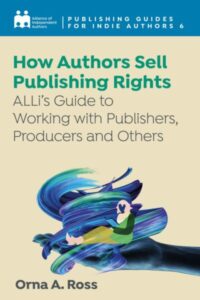
How Authors Sell Publishing Rights: ALLi Guide Launching December 1st 2023
Find out more with ALLi’s new guide launching soon, and bespoke advice available exclusively to members
If this post has got you thinking about the licensing rights for your work, there’s lots more to learn about the processes and options on offer in our new guide launching on December 1st 2023.
With How Authors Sell Publishing Rights: ALLi’s Guide to Working with Publishers, Producers and Others you’ll learn how to pitch, negotiate and close a deal, along with how to work with literary agents and global publishing companies to get the best deal for your work.
Members and non-members can sign up in seconds for an alert to ensure you are the first to know when this new publication goes live: Pre-Order How Authors Sell Publishing Rights ALLi Guide
If you are ready to go with your licensing agreements and would like bespoke support, members of ALLi can also request advice from our legal team or dedicated literary agent. Just log in to the member zone and navigate to Advice–> Contracts, where you'll find guidance, details of our contract review service, and sample annotated contracts.

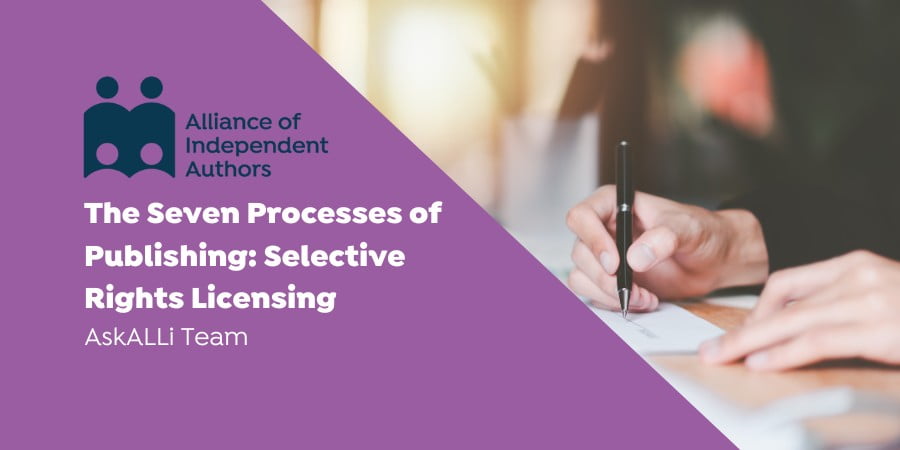

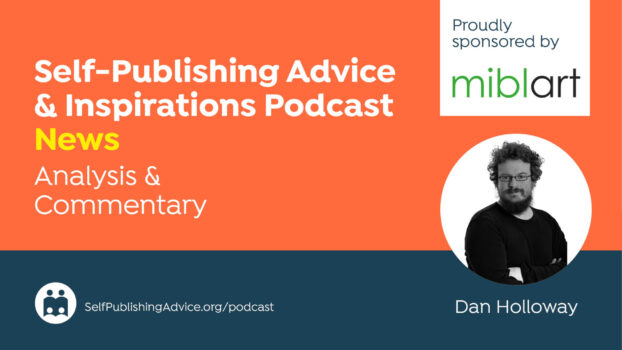
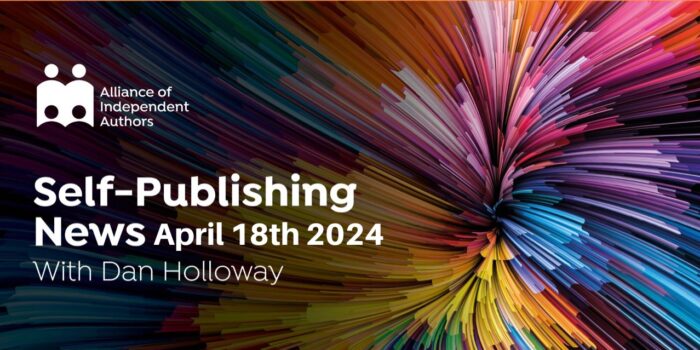
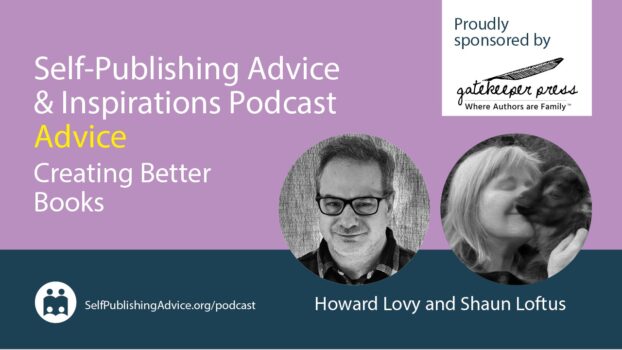
I am so so frustrated because so my bookshops and other individuals are illegally selling my books on Amazon, eBay and the net. I tried to stop it but eBay didn’t respond.
Any suggestions